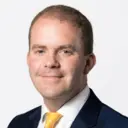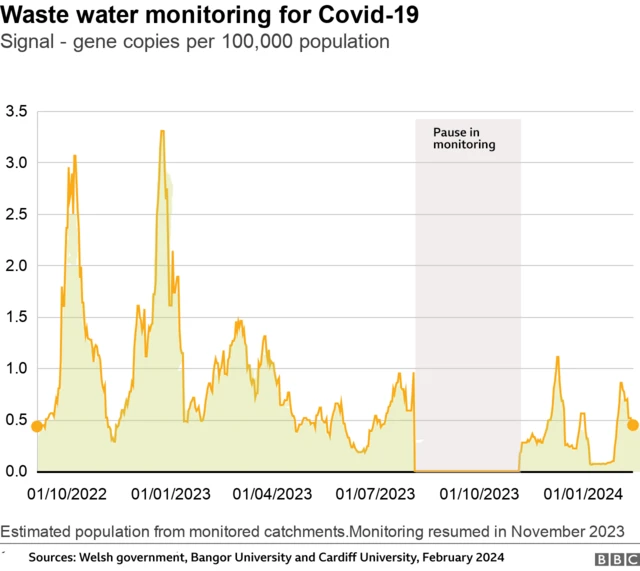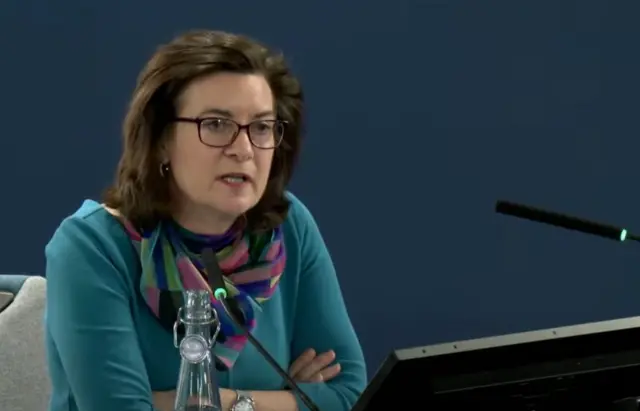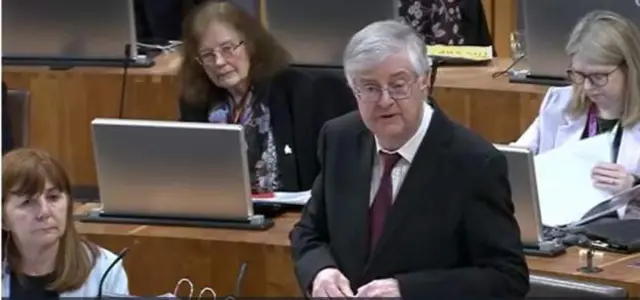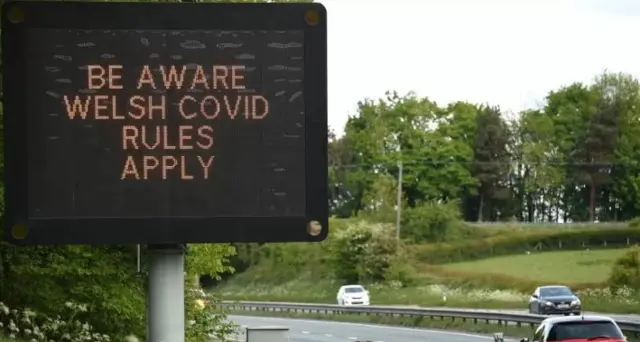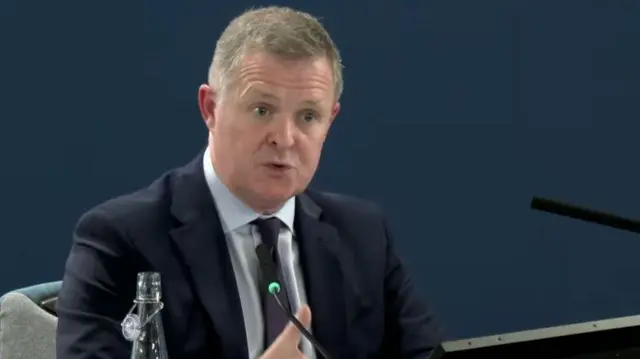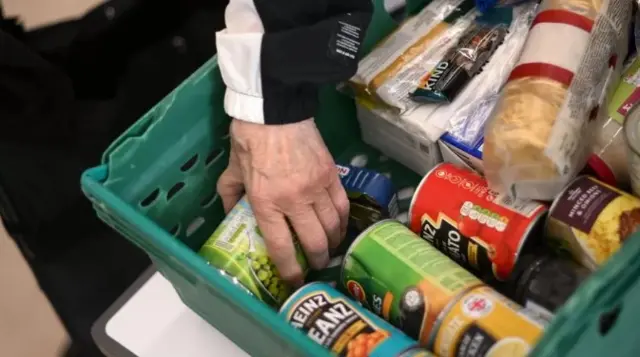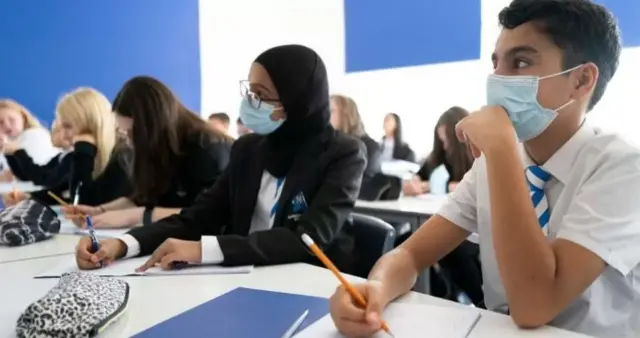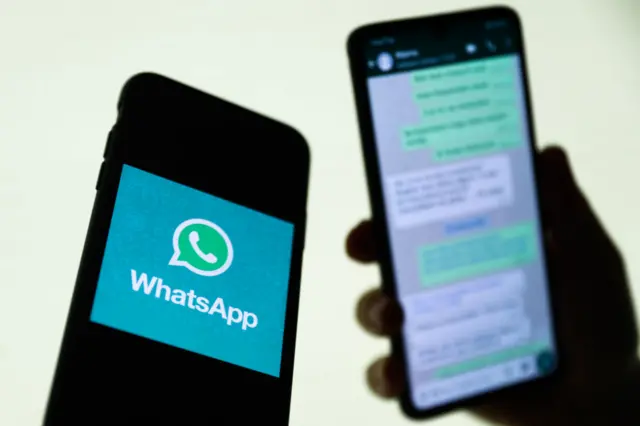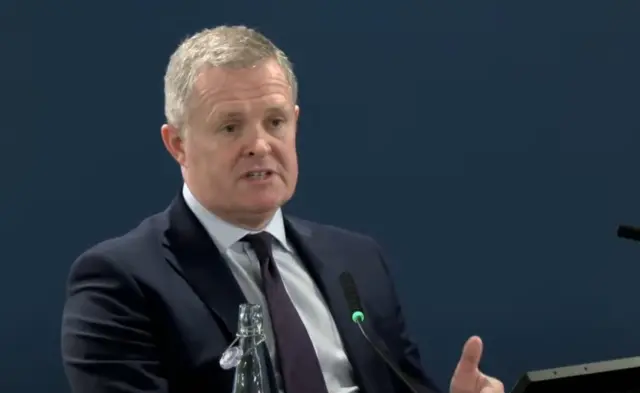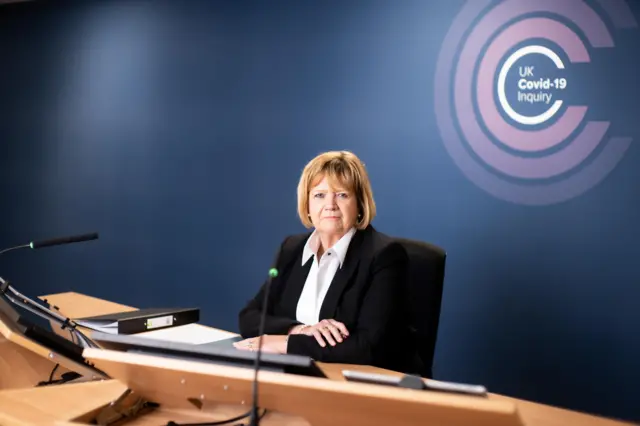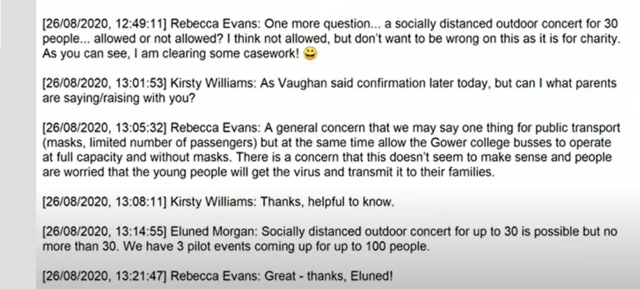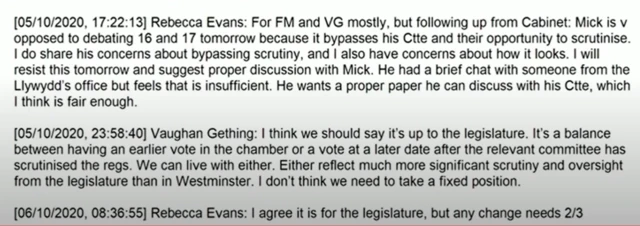Last but not least... first minister to give evidence tomorrowpublished at 16:55 GMT 12 March 2024
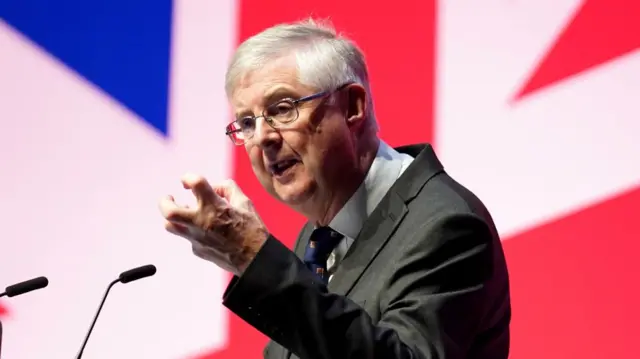 Image source, PA Media
Image source, PA MediaThat’s a wrap for today - but this week’s action is far from over.Tomorrow, the Covid inquiry will hear evidence from outgoing First Minister Mark Drakeford.
He will face a host of questions about how seriously the threat of the virus was being taken by the Welsh government in early 2020.
And like his fellow ministers today, there’s likely to be significant focus on the relationship with UK government, and his use of WhatsApp, including the deletion of messages.
But central to the session will be questions on the much-criticised policy around testing patients discharged to care homes and the asymptomatic testing of all care home residents and staff.
For more what we can expect from Drakeford, click here.
Then finally on Thursday, we will hear closing statements as the UK Covid-19 inquiry’s three-week stay in Wales comes to an end.
This page was edited by Emma Owen, Jack Burgess and Peter Shuttleworth. The writers were Catriona Aitken, Jenny Rees, Steve Duffy, Craig Hutchison, Malu Cursino, Jake Lapham and Emily Atkinson.
Thanks for joining us.

